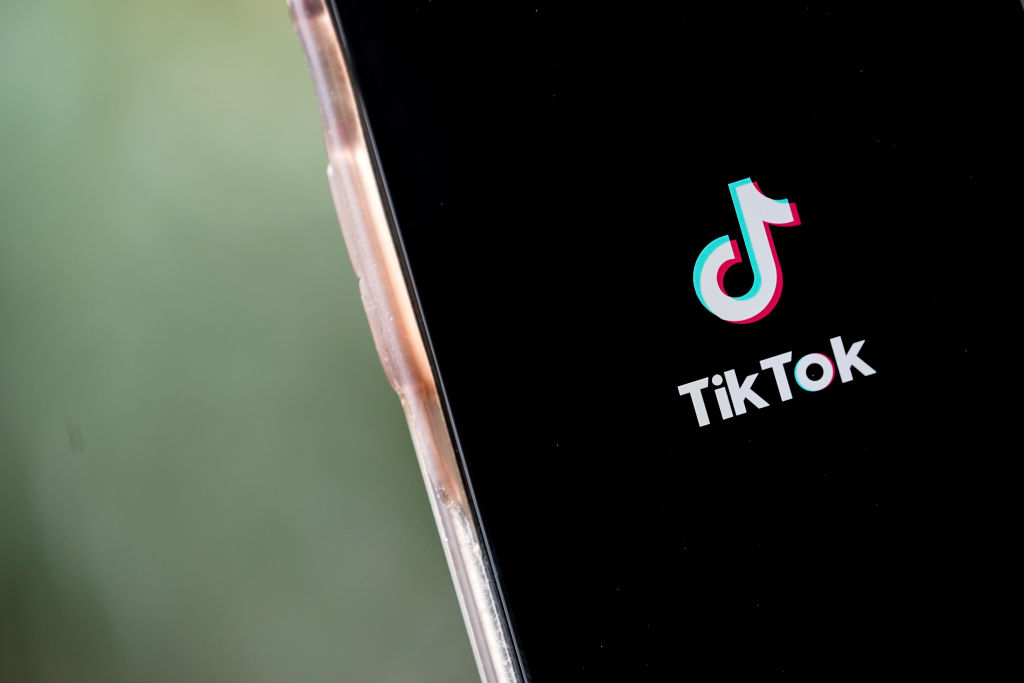
On Wednesday, Montana Governor Greg Gianforte signed a first-of-its kind law to ban the Chinese-owned social media app TikTok in the state. The law, which is set to go into effect in January 2024, quickly came under fire for violation of free speech laws.
In a statement, Gianforte’s office called the law an attempt to “protect Montanans’ personal and private data from being harvested by the Chinese Communist party.” Tech and legal experts say that how the ban is handled in the coming months could set a precedent for how TikTok, which has over 150 million users in the U.S., is regulated across the nation, especially as states and federal legislatures look towards restricting the platform’s reach.
“Right now we’re seeing a patchwork of efforts to limit the [app]- whether it’s limiting access for minors or prohibiting it from being downloaded on government devices,” says Courtney Radsch, research fellow at the UCLA Institute for Technology, Law and Policy Institute.
Radsch notes that an outright ban in the state will lead to far more complications. “This is going to be a tipping point because it’s likely to be challenged on a constitutional level.”
How would the ban work?
The new law seems to places responsibility on the app stores and TikTok’s parent company, ByteDance, to regulate use rather than individual users. Platforms like Google and Apple would be required to remove the app from their app stores in the state and could face a $10,000 fine for each day they failed to comply. (Google and Apple did not return TIME’s request for comment.)
It’s currently unclear how the ban would be enforced beyond that, or how it would impact users who downloaded the app before Jan. 1, but experts say that putting it into action will not be a simple task. Companies might try to use a tactic called geofencing to block the app based on a user’s geographical boundary, but users could easily utilize VPNs to change their location to another state.
“It will be difficult to implement it in a way that cannot be circumvented,” says Ramya Krishnan, a staff attorney at the Knight First Amendment Institute.
Would the law hold up in court? ?
A lawsuit against the ban seems likely to come. Keegan Medrano, policy director at the ACLU of Montana, said in a May 17th statement that the Montana legislature has “trampled” on free speech. “We will never trade our First Amendment rights for cheap political points.”
In a statement published on Twitter Wednesday evening, TikTok said, “We want to reassure Montanans that they can continue using TikTok to express themselves, earn a living, and find community as we continue working to defend the rights of our users inside and outside of Montana.” TikTok did not return TIME’s request for comment.
“[TikTok] is a place where lots of people are saying diverse things. To make that information inaccessible to Montanans, and to also prevent Montanans from contributing to that discourse, the government will have to show very compelling justifications,” says Anupam Chander, a professor of law and technology at Georgetown University.
Any legal challenge might closely resemble the last time a TikTok ban was attempted. In 2020, courts blocked Trump’s executive order to ban TikTok and Chinese-owned messaging app WeChat, ruling that the Trump administration hadn’t demonstrated enough of a security risk to limit users’ speech.
Montana’s ban hinges on the idea that the app is a security risk, but experts say the state doesn’t have evidence to prove that. “To justify the ban, Montana would have to show that its privacy and security concerns are real and that they can’t be addressed in narrower ways,” says Krishnan. “It hasn’t done this.”
Krishnan adds that banning TikTok would set a dangerous precedent for how we regulate free speech online. “Restricting access to foreign media is something we usually associate with authoritarian regimes,” she says, “And we should be very careful before giving that kind of power to our government.”
How does this fit into the larger trend of banning TikTok?
Government officials in Montana have justified the law as a way to combat data collection and disinformation on the platform, a stance that is becoming increasingly common. Congress recently introduced the RESTRICT Act, which would allow the Secretary of Commerce to ban foreign technologies and companies from operating in the U.S. if they present a threat to national security.
“The real issue here is the need for a national data protection law,” says Radsch, who says that unregulated data collection is likely being done by tech companies both in the U.S. and abroad.
The most effective solution would be to pass a legislation that governs how data is collected and used. “A lot of things are national security risks of some level. We use the internet all the time, where our daily activities are prone to hijacking by foreign actors,” Chander says, “The question of a national security threat is there, but it’s just important to keep in mind these risks are everywhere. It’s not just one app or one domain.”
More Must-Reads from TIME
- Cybersecurity Experts Are Sounding the Alarm on DOGE
- Meet the 2025 Women of the Year
- The Harsh Truth About Disability Inclusion
- Why Do More Young Adults Have Cancer?
- Colman Domingo Leads With Radical Love
- How to Get Better at Doing Things Alone
- Michelle Zauner Stares Down the Darkness
Write to Simmone Shah at simmone.shah@time.com